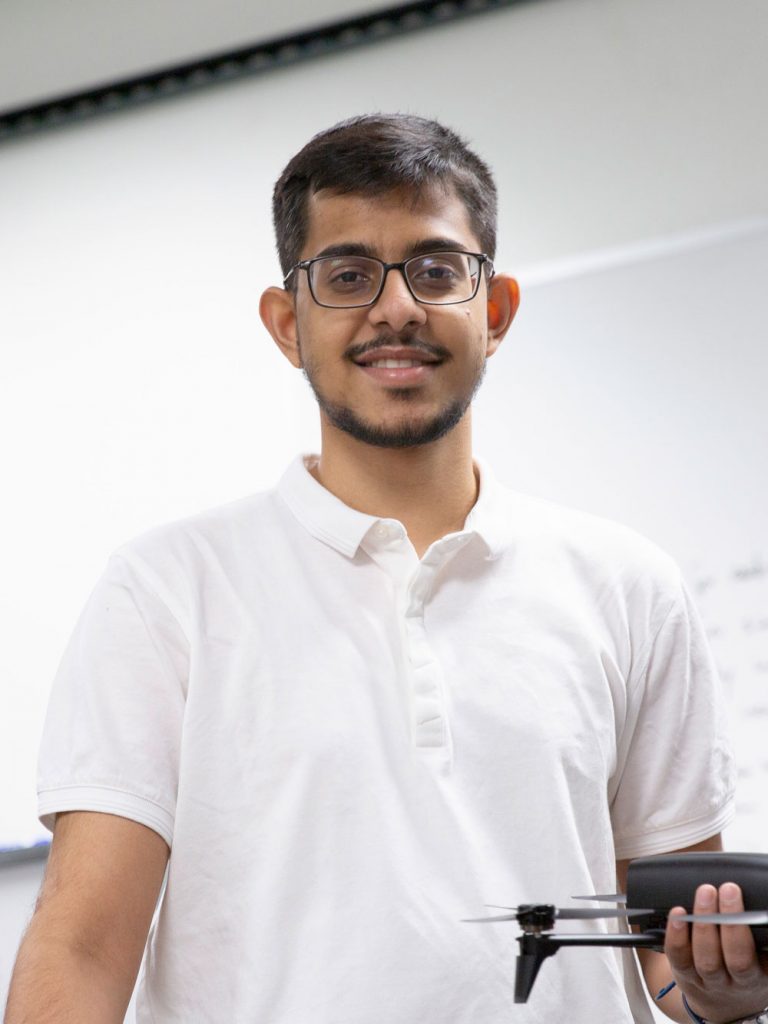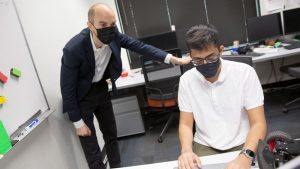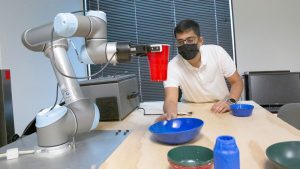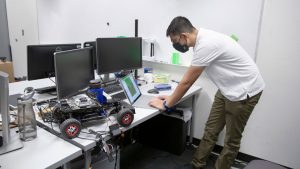Parth Khopkar
Computer science
Hometown: Indore, Madhya Pradesh, India
Graduation date: Spring 2021

MORE | Spring 2021
Control and Coordination of Multi-Robot Swarm Systems
Robot swarms show great promise in performing complex tasks in areas ranging from search and rescue to interplanetary exploration and yet controlling the behaviors of these swarms effectively is an open research problem. This research investigates techniques to control a drone swarm where the drones learn to act using demonstrations obtained from artificially generated swarm motion data and then utilize Reinforcement Learning(RL) to improve performance in the face of real-world challenges such as sensor noise. The use of Graph Neural Networks (GNNs) in the controller for the swarm system provides the drones with contextual information about their environment and serves as an inductive bias in the learning process.
Mentor: Heni Ben Amor
Featured project | Spring 2021
Parth Khopkar is a computer science graduate student in the MORE program, which presents at the FURI Symposium. Khopkar is teaching multi-robot swarms to better coordinate using reinforcement learning techniques. He was inspired by search and rescue officials saying how this sort of technology could help them better perform their jobs.
What made you want to get involved in MORE?
A couple of my friends were a part of MORE in previous semesters. When I attended their poster presentations at the symposium, I realized that this is something I would love to be a part of.
Why did you choose the project you’re working on?
I have always been fascinated by the promise of robots working together in the future, similar to how humans do now. Coordination with fellow human beings has been the bedrock of human society since the earliest times. This is why I decided to focus on a project in the field of multi-robot coordination.
Another inspiration for my project was also an event held at ASU’s Drone Studio in January 2020 where officials from the Arizona Search and Rescue Coordinators Association talked about how having unmanned aerial vehicles (UAVs) in the loop would enable them to get feedback immediately during search and rescue operations and cover more ground than humans can.
What has been your most memorable experience as a student researcher?
One of my most memorable experiences has been presenting in last semester’s symposium. Because it was virtual, my friends and family halfway across the world were also able to attend.
How will your engineering research project impact the world?
My research on multi-robot coordination has a chance to impact many aspects of the world we live in, from underwater robotics to planetary exploration. Something a little closer to home is the use of drones in autonomous search and rescue missions.
How do you see this experience helping with your goals?
The research I do for MORE is also a part of my master’s thesis, so it is already helping my career by supporting my research interests.
What is the best advice you’ve gotten from your mentor, Assistant Professor Heni Ben Amor?
My mentor always says that if you can’t get something to work, just keep reducing the complexity until it does. I have applied this to my work and found that the reduced complexity allows me to better understand the techniques being used and then scale up from there.
Why should other students get involved in MORE?
If you are interested in research or want to know whether research is something that you would like to do for a career, this program is an excellent opportunity to gain research experience. Here, you set the bounds on what you would like to accomplish while being supported by a faculty mentor.


